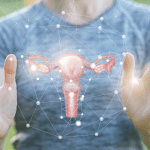Introduction to Hysterectomy and Sexual Health
Hysterectomy, the surgical removal of the uterus, is a common procedure that affects hundreds of thousands of women each year. While it can provide relief from various medical conditions such as fibroids, endometriosis, and certain cancers, it also raises questions about the impact on sexual health and function post-operation.
Common Concerns about Sexual Function Post-Op
Many women express concerns about how a hysterectomy might alter their sexual experiences. Anecdotal reports and studies suggest a range of outcomes, with some women experiencing a lack of vaginal sensations, diminished orgasms, and reduced libido, while others report no significant changes or even improvements in their sexual well-being.
The G-Spot and Orgasm: Anatomical Considerations
The G-spot, or Gräfenberg spot, is an area within the vagina that is often associated with strong sexual arousal and orgasm when stimulated. Its anatomical existence and function have been subjects of debate, but for some women, it plays a crucial role in achieving orgasm. The relationship between the G-spot, clitoral network, and the potential impact of hysterectomy on these sensitive areas is a topic of interest for those undergoing the procedure.
Objective of the Article
This article aims to provide a comprehensive guide on the effects of hysterectomy on the G-spot and orgasm. It seeks to address the concerns and questions women may have regarding their post-operative sexual function, offering insights into the short-term and long-term changes they might expect, as well as strategies for maintaining or enhancing sexual pleasure after the surgery.
Understanding the G-Spot and Clitoral Network
Anatomy and Function of the G-Spot
The G-spot, often described as a highly sensitive area within the vaginal canal, has been a topic of both intrigue and scientific debate. While some studies have not identified a distinct anatomical structure, the G-spot is believed to be part of the clitoral network. This network includes the clitoris, a small, sensitive protrusion located at the anterior part of the vulva, and its extensive internal nerve roots that extend down into the vaginal wall, where the G-spot is said to be located. Stimulation of the G-spot can lead to intense sexual pleasure and orgasm for some individuals.
The Clitoral Network and Sexual Stimulation
The clitoral network is a complex structure that extends beyond the visible part of the clitoris, with nerve endings that spread throughout the vulva and into the vaginal canal. This network is responsible for sexual arousal and orgasm through its various components, which work in unison during sexual activity. The clitoral network’s extensive reach means that stimulation can occur in multiple areas, contributing to the sexual response.
Impact of Hysterectomy on the G-Spot
A hysterectomy, the surgical removal of the uterus, can raise concerns about its impact on sexual function, particularly regarding the G-spot. Fortunately, the nerves and tissues associated with the G-spot and clitoral network are not typically removed or severed during a hysterectomy. This means that if G-spot stimulation was pleasurable before the surgery, it is likely to remain so afterward. However, individual experiences can vary, and some may notice changes in sensation or orgasm due to the surgery’s impact on other nerves and organs. It is important to communicate with healthcare providers about any changes in sexual function post-hysterectomy.
Short-Term and Long-Term Effects of Hysterectomy on Sex
Immediate Post-Op Recovery
After a hysterectomy, the body undergoes a significant healing process. The immediate post-operative period is crucial for recovery, and sexual activity is generally not recommended during this time. Patients may experience pain, discomfort, and vaginal bleeding, which are normal responses as the body heals from the surgery. It is essential to follow the doctor’s advice on when to resume sexual activity, typically after a minimum of six to eight weeks, depending on the type of hysterectomy performed. During this period, the focus should be on allowing the body to heal and avoiding any activities that could disrupt the healing process or cause complications.
Long-Term Physical Changes
The long-term physical changes after a hysterectomy can vary based on the extent of the surgery and whether additional organs, such as the ovaries, were removed. For some, the removal of the uterus may lead to a change in the experience of sexual sensation, as the uterus can be sensitive during sex. However, this does not necessarily mean an inability to achieve orgasm. The body may adapt, and other forms of sexual sensation can still be experienced. If the ovaries are removed, hormonal changes may result in symptoms like decreased libido and vaginal dryness, which can affect sexual function. Hormonal treatments and the use of lubricants can help manage these side effects.
Psychological Impact and Well-being
A hysterectomy can also have a psychological impact on an individual’s well-being, which in turn can affect sexual health. Some may experience a change in self-perception, feelings of femininity, or attractiveness, which can influence sexual desire and confidence. It is important to address these emotional changes, as they can play a significant role in overall sexual satisfaction. Seeking support from mental health professionals, support groups, or counseling can be beneficial in navigating these changes. Open communication with partners about feelings and sexual health is also key to maintaining a healthy sexual relationship post-hysterectomy.
In conclusion, while a hysterectomy can lead to both short-term and long-term changes in sexual function, many individuals can continue to have a fulfilling sex life with proper care, support, and adaptation. It is important to have realistic expectations, to communicate with healthcare providers about any concerns, and to explore different ways to experience sexual pleasure and intimacy.

Specific Effects of Hysterectomy on Orgasm
Changes in Orgasm Post-Total Hysterectomy
After a total hysterectomy, where both the uterus and cervix are removed, women may experience changes in the quality or intensity of orgasm. The cervix is sensitive to touch and pressure from penetration, which can contribute to the sensations experienced during climax. With its removal, some women report a change in the sensation of orgasm, although it does not necessarily prevent orgasm from occurring. The uterus and cervix contract during orgasm, and without these structures, the physical experience of climax may be altered. However, many women find that they can still achieve orgasm through clitoral or other forms of stimulation.
Effects of Ovary Removal on Sexual Function
When ovaries are removed during a hysterectomy, known as oophorectomy, there can be a more pronounced effect on sexual function. Ovaries produce hormones such as estrogen and testosterone, which are integral to libido and vaginal lubrication. The absence of these hormones can lead to decreased sex drive, vaginal dryness, and sometimes discomfort during intercourse. Hormonal treatments may be prescribed to alleviate these symptoms, and the use of lubricants can make penetration more comfortable. It’s important to note that not all women experience these changes, and some may continue to have a robust sex drive post-surgery.
Potential Positive Outcomes on Sexual Response
Interestingly, research suggests that some women may experience an improvement in sexual response following a hysterectomy. This improvement could be due to the relief from symptoms such as pelvic pain, heavy bleeding, or other conditions that negatively impacted their sex life prior to surgery. With these symptoms managed or eliminated, women may find a new level of comfort and enjoyment in sexual activity. Additionally, the removal of the fear of pregnancy can lead to a more relaxed and enjoyable sexual experience for some. It’s essential for women to communicate with their partners about any changes in sensation or response to find mutually satisfying ways to maintain intimacy.
Navigating Recovery and Resuming Sexual Activity
Recommended Recovery Timelines
Recovery from a hysterectomy is a gradual process, with timelines varying based on individual circumstances and the type of surgery performed. Generally, patients can expect to spend one to two days in the hospital post-operation. It is crucial to follow your surgeon’s advice, but here are some general guidelines:
- First 6-8 weeks: Focus on healing, avoiding heavy lifting and strenuous activities. Sexual activity should be avoided during this period to allow the body to heal properly.
- 8-12 weeks: Gradual reintroduction of regular activities, including light exercise. Some may feel ready to resume sexual activity, but it’s essential to listen to your body and not rush the process.
- 3-6 months: Most women fully recover within this timeframe. However, it’s not uncommon for complete emotional and physical adjustment to take up to a year, especially if the ovaries were removed and hormonal changes occur.
Addressing Side Effects and Seeking Help
Post-hysterectomy, women may experience various side effects, including vaginal dryness, a decrease in libido, and changes in sensation. It’s important to address these issues:
- Consult your doctor: If you’re experiencing discomfort or pain during sex, or any other concerning symptoms, seek medical advice.
- Hormone therapy: If your ovaries were removed, hormone replacement therapy might be recommended to manage menopausal symptoms that can affect sexual function.
- Pelvic floor therapy: Engaging in pelvic floor exercises can help strengthen the muscles and potentially enhance sexual pleasure.
Using Lubricants and Other Aids
Due to changes in hormone levels and the removal of the cervix, vaginal dryness can be a common issue post-hysterectomy. Using lubricants can significantly improve comfort during sex:
- Water-based lubricants: These are recommended as they are less likely to cause irritation and are safe to use with condoms.
- Silicone-based lubricants: These last longer than water-based options and can be beneficial for those experiencing severe dryness.
- Vaginal moisturizers: Regular use of over-the-counter vaginal moisturizers can help maintain vaginal moisture.
- Sexual aids: Tools like vaginal dilators can help in maintaining vaginal flexibility and can be used as part of a therapeutic regimen to ease discomfort during intercourse.
It’s important to communicate openly with your partner about what feels good and what doesn’t, and to explore different types of sexual activities that may be more comfortable. Remember, intimacy is not limited to penetrative sex, and there are many ways to maintain a close physical connection with your partner.
Emotional Considerations and Mental Health Post-Hysterectomy
Emotional Changes and Self-Perception
Undergoing a hysterectomy can be a significant emotional event for many women. The loss of the uterus, an organ often associated with femininity and reproductive capability, can lead to a range of emotional responses. Some women may experience a sense of relief, particularly if the hysterectomy ends painful symptoms or the threat of disease. However, others may struggle with feelings of loss or a change in their self-perception.
It is not uncommon for women to report feelings of sadness or grief post-hysterectomy. These emotions may be compounded by hormonal changes, especially if the ovaries are also removed during the procedure, leading to sudden menopause. The shift in hormone levels can affect mood and overall emotional well-being. Additionally, some women may feel less feminine or worry about their sexual desirability and function post-surgery.
It is important to recognize that these emotional changes are a normal part of the recovery process. Women should be encouraged to express their feelings and seek support from healthcare providers, counselors, or support groups. Open communication with partners and loved ones is also crucial during this time.
The Importance of Mental Health Support
Mental health support is a critical component of the recovery process after a hysterectomy. Professional counseling can provide a safe space for women to discuss their concerns and work through complex emotions. Mental health professionals can offer coping strategies for managing mood swings, anxiety, and depression that may arise.
Support groups, whether in-person or online, can also be beneficial. Connecting with others who have had similar experiences can provide comfort and reduce feelings of isolation. These groups can offer practical advice and emotional support, helping women to navigate the changes in their lives.
Healthcare providers should proactively address the potential for emotional and psychological changes post-hysterectomy. They can provide resources, refer patients to mental health professionals, and ensure that emotional recovery is treated with the same importance as physical healing.
In conclusion, emotional considerations and mental health support are integral to the post-hysterectomy healing process. By acknowledging the potential for emotional upheaval and providing comprehensive support, women can be better equipped to adjust to life after hysterectomy and maintain a positive sense of self and well-being.
Adapting to Changes and Enhancing Sexual Pleasure
Exploring New Sexual Experiences
After a hysterectomy, your body may experience changes that can affect your sexual experience. It’s important to approach these changes with an open mind and a willingness to explore new avenues of pleasure. Consider experimenting with different types of stimulation, such as clitoral, oral, or anal, which may become more significant in achieving orgasm post-surgery. Introducing sex toys, erotic literature, or visual aids can also add variety and excitement to your sexual encounters. Remember, the G-spot is part of the clitoral network, and its stimulation can still lead to pleasurable sensations. Be patient with yourself as you discover what feels good in this new chapter of your sexual journey.
Communication with Your Partner
Open and honest communication with your partner is crucial as you navigate the changes in your sexual relationship post-hysterectomy. Share your feelings, desires, and any apprehensions you may have. It’s essential for your partner to understand that while your body may respond differently to stimulation, your need for intimacy and pleasure remains. Work together to find comfortable positions and techniques that provide mutual satisfaction. Encourage your partner to be patient and attentive to your cues, as your body’s response to arousal may have changed. This collaborative approach can strengthen your bond and enhance your sexual pleasure.
When to Consult Your Doctor
If you encounter persistent issues with arousal, orgasm, or discomfort during sex, it’s important to consult your doctor. They can provide guidance on managing side effects such as vaginal dryness, which can be alleviated with appropriate lubricants or hormonal treatments. Your doctor can also refer you to a sex therapist or counselor if emotional factors are impacting your sexual well-being. It’s essential to address these concerns early on to prevent long-term difficulties and to ensure a fulfilling sex life after your operation.
Adapting to the changes in your body and sexual response after a hysterectomy requires patience, exploration, and open communication. By embracing new experiences, working closely with your partner, and seeking professional advice when necessary, you can continue to enjoy a rich and satisfying sexual life.














